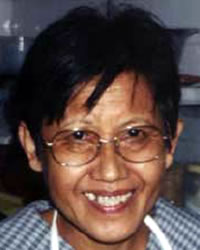Han Chinese, Teochew in Malaysia

Photo Source:
Copyrighted © 2026
Southeast Asia Link - SEALINK All rights reserved. Used with permission |
Send Joshua Project a map of this people group.
|
| People Name: | Han Chinese, Teochew |
| Country: | Malaysia |
| 10/40 Window: | Yes |
| Population: | 1,168,000 |
| World Population: | 1,775,000 |
| Primary Language: | Chinese, Min Nan |
| Primary Religion: | Ethnic Religions |
| Christian Adherents: | 12.00 % |
| Evangelicals: | 5.75 % |
| Scripture: | Complete Bible |
| Ministry Resources: | Yes |
| Jesus Film: | Yes |
| Audio Recordings: | Yes |
| People Cluster: | Chinese |
| Affinity Bloc: | East Asian Peoples |
| Progress Level: |
|
Introduction / History
Teochew-speaking Chinese constitute the fifth-largest Chinese dialect spoken among Chinese in Malaysia. Originally, the ethnic Teochew ancestors came from the vicinity of Shautou in northern Guangdong and southern Fujian in China. Additionally, they were known as the Chaoshan people or people of the mountains of Chao. The term Teochew (Chaozhou in phonetic Mandarin) came from the name of the ancient riverside city of Chaozhou in China, a major port in that region. The Teochew dialect is essentially the language of the Chaoshan people. It evolved from the Hokkien dialect and is therefore a part of the Minnan subgoup to which Hokkien also belongs. In Malaysia, there are a number of Teochew variants (each peculiar by sub-region) with sometimes vastly different pronunciations and or tones.
Teochew-speaking Chinese throughout Malaysia are concentrated in certain regions. As a result, their dialect is often the primary language spoken. Major concentrations of Chinese speaking Teochew are found in Kedah and north Perak states.
What Are Their Lives Like?
The early Teochew adventurers came to Malaysia in order to seek a better life. In the past, they specialized as grocers. With rapid socio-economic changes in Malaysia, Teochew people work in many professions, interacting with people of other races. In the states of Kedah and north Perak, Chinese speaking Teochew are predominantly fisherman. Traditionally, Teochew, like all other Chinese groups, lived with their nuclear or extended families. Although there are still a good number of Teochew villages existing in some parts of Malaysia, many members of these communities are moving to developed towns and cities in pursuit of social and economic advancement.
What Are Their Beliefs?
Teochew speaking Chinese are very particular about their safety both at work and at home. They often use the Mandarin phrase churu ping'an, which ensures one's safety on undertaking a journey or on returning home. Therefore, it is not uncommon for a typical Teochew speaking Chinese family to place the paintings of two door deities called Qin Qiong and Yuchi Gong (AD 618-907 Tang dynasty's top two generals of emperor Taizong who stood guard outside his bedroom door) on their doors to protect the family. Teochew villages in every rural area establish a small shrine for Tudigong, which is the earth god. He is also enshrined in every Teochew household, shop, and temple. Tudigong is a local deity who keeps track of all births and deaths in the area under his jurisdiction and he accompanies the newly departed soul to the courts of purgatory to await judgment. Teochew speaking Chinese also worship or offer sacrifices to Tudigong when their children are illness or have offended the deity. A small percentage of the Teochew are Christian.
What Are Their Needs?
Many Teochew are drawn away from their communities in order to find a new and better lifestyle in the cosmopolitan cities. However, many others still live in isolated fishing villages.
Prayer Points
Pray that God's will minister to those Teochew speaking Chinese who are shifting to urban areas and are search for meaning in life.
Pray also that God will send similar ministers to the Teochew back in their isolated fishing villages.
Pray that Christians among them will have the love and the zeal to share Christ with Malay Muslims.